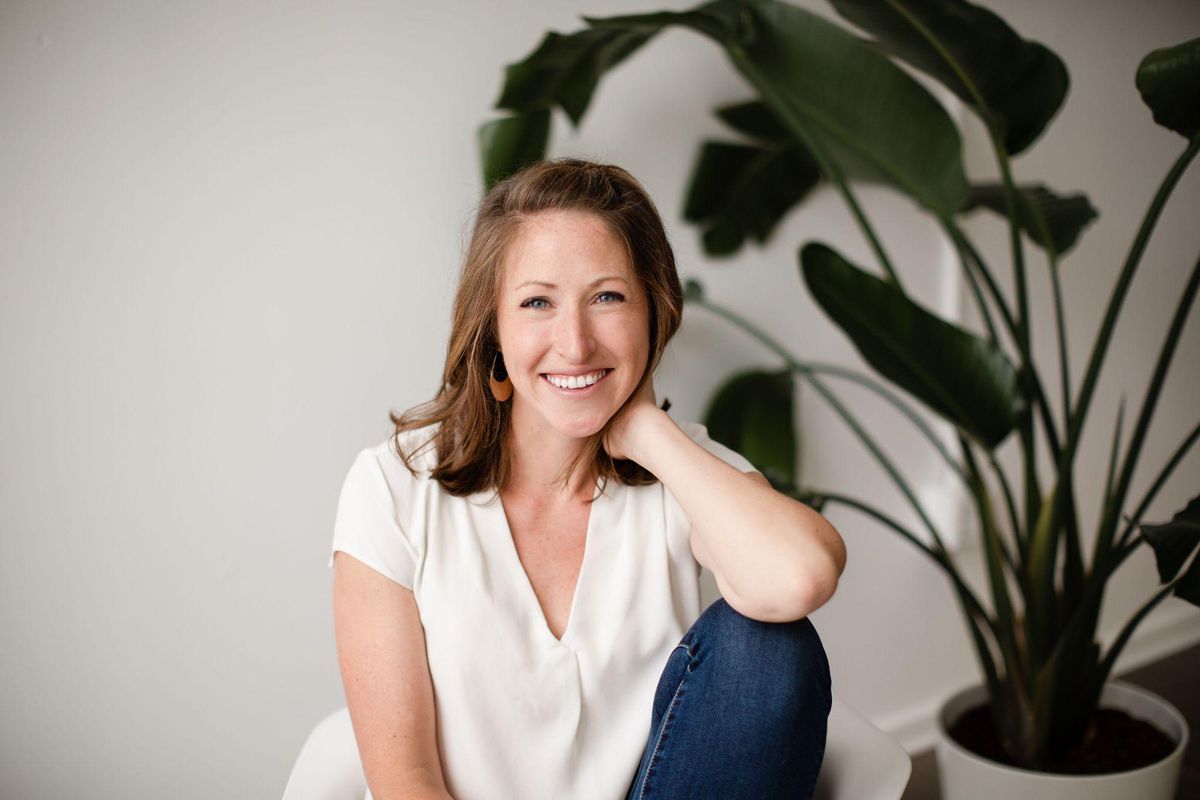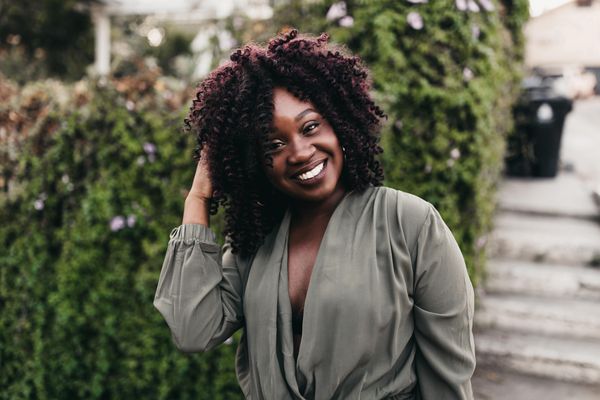As told to Nicole Audrey Spector
May is Mental Health Awareness Month.
I can't remember a time during my childhood when I didn't feel worried.
Even in first grade, there was always this sense of unease in my stomach, a tangled knot of dread. My mind was constantly churning out terrifying "what ifs." What if my parents die? What if my mom never picks me up from school? What if, after the lights go off for bedtime, they never come back on? The thoughts just wouldn't stop, and the more I tried to quiet them, the louder they became.
My anxiety got so intense that at playdates and sleepovers, I'd sometimes make myself throw up just to appear sick so my mom would come get me early.
To my knowledge, my incessant anxiety wasn't prompted by any specific event. Perhaps if there had been some known trauma or tragedy beforehand, my family would have taken my anxiety seriously. Instead, nobody around me gave much thought to my being literally worried sick all the time. My sisters teased me about it. My parents shrugged it off as normal kid stuff that I'd grow out of. The idea of getting me a therapist or any other type of help was never considered.
Over time, I learned to lock my anxiety away like my worst secret.
In my teen years, my fear and dread shifted onto my studies. I believed that if I did not achieve academic perfection at every opportunity, something horrific would happen. My anxiety persisted through college, when one day, my heart began palpitating and I fainted.
I went to see my doctor, who, after running tests on my heart (all clear), suggested I see a therapist, suspecting I suffered from an anxiety disorder. I was shocked. I knew I was different, but I never thought there was any sort of disorder at hand.
I began seeing a therapist and a psychiatrist. I was diagnosed with generalized anxiety and prescribed an SSRI, which is a type of medication that can help treat depression and anxiety by increasing levels of serotonin in the brain. The treatment was life-changing. The fear lifted off my chest. It felt like I was finally myself.
Some years later, still doing well and in therapy, I got married. A few years after that, I became pregnant. At that time, I chose to go off my medication, thinking an SSRI could affect my baby. I was in between therapists and just hadn't gotten around to finding a new one.
Immediately, I fell back into the clutches of anxiety — which felt worse than ever. I loved being pregnant, but after my first of two children, Kelly*, was born, my postpartum depression was unbearable. Sleep deprivation triggered all my old anxiety symptoms times 10 — with a heaping side of depression. At times I was so sad and anxious I considered suicide, though fortunately never made any attempts. In retrospect, I don't even know how I survived it.
It's all kind of a blur to me now, but I was eventually able to understand that if I was going to care for my daughter (and keep my marriage intact), I would need to return to therapy and get back on my meds. And so I did. I got back on track and had my second child, this time with proper mental health care and very little anxiety or depression.
Around the time our second child was born, Kelly was just over 2 years old. I started noticing that she was a lot like I was at her age. She didn't seem anxious per se, but she was extremely sensitive and quick to take on the pain of others. In preschool, she made sure everyone had their snack before she ate. If I was ever upset about anything, she rushed to console me, giving me her favorite stuffed animal for comfort.
Kelly didn't seem worried, just deeply empathetic, so I wasn't concerned — until the night terrors began. And the sudden social shutdowns. And the obsessing over "what if" scenarios.
One day when Kelly was 4, she couldn't stop sobbing and turned to me with wide, worried eyes and said, "Mommy, I'm scared." My heart just broke. Seeing Kelly so small with the weight of the world on her little shoulders, I thought, "That was me."
My husband and I met with a pediatrician who referred Kelly to a child therapist. Within weeks of beginning therapy, we noticed a huge difference: Kelly was more confident, more engaged with others, and less prone to panic.
Around this time, I met with my mother for lunch. I'd been hesitant to tell her that Kelly was receiving mental health treatment (I hadn't wanted to open myself up to possible criticism), but I decided it was best that she knew. So, I explained all the anguish Kelly had gone through and how much better she was doing now. As I spoke, my mother remained very quiet.
"Kristi," she said, a sadness welling in her eyes. "That's exactly how you were."
Then she asked me if my feeling like that — worried all the time — had made it hard for me growing up.
I admitted that it had been.
"I am so sorry," she said. "I didn't know. I thought it was just a phase."
She told me how proud she was of me for not letting my daughter go through what I went through. At that moment, whatever remnants of resentment I'd carried in my heart sloughed off like dead skin. The inner anxious child in me felt finally heard, seen and calmed.
I thought of all the other parents out there who, like my mother, love their children so much but may not know what to do when their child is anxious or even what signs to look for. And I thought of the parents out there like me, who have learned how to cope with their own anxiety but are at a loss with their child's. The common denominator between people like me and people like my mother is, in part, a lack of accessible resources to understand and address a child's anxiety. So I came up with Wondergrade, a company and app that teaches parents tools to help their young kids self-regulate and calm down when anxious.
Every once in a while, Kelly will approach me with a worried "what if?" In return, I ask her, "What is most likely to happen?" She works out that, most likely, whatever dreaded scenario she's imagining won't occur because it hasn't thus far. She self-regulates and her fear flies away.
Sometimes a "what if" creeps up on me, too. But now I know how to shoot it down, just like Kelly does. And I know how to do what used to be impossible for me: I go about my day, moment by moment, feeling — fearlessly — every beautiful second.
*Kelly is not her real name.
Resources:
Anxiety & Depression Association of America
National Alliance on Mental Health
National Institute of Mental Health
- Living With Postpartum Depression and Anxiety Isn't the End ... ›
- My Adult ADHD Diagnosis Changed How I Parent My ADHD Kids ›
- How Mental Health Affects Your Heart ›
- Am I Passing My Mental Health Disorders on to My Kids? If So, What Can I Do About It? ›
- Causes of Mood Swings - HealthyWomen ›
- How to Help Your Kids Break out of Their Pandemic Bubble - HealthyWomen ›
- Popping Toys Might Reduce Stress for Adults and Children - HealthyWomen ›







